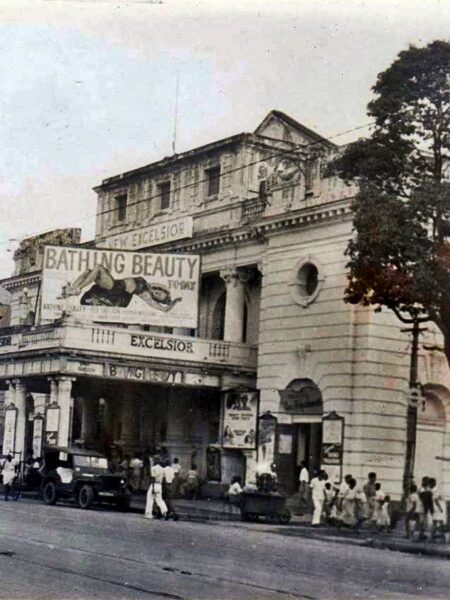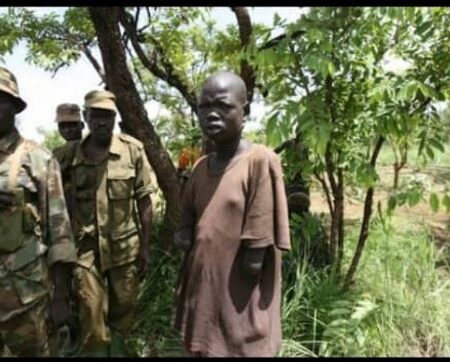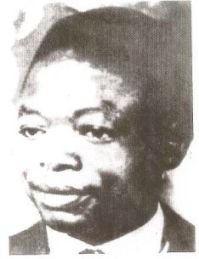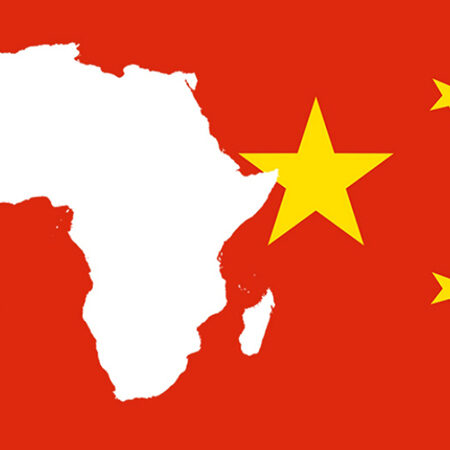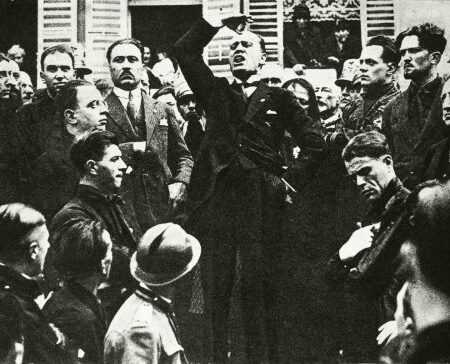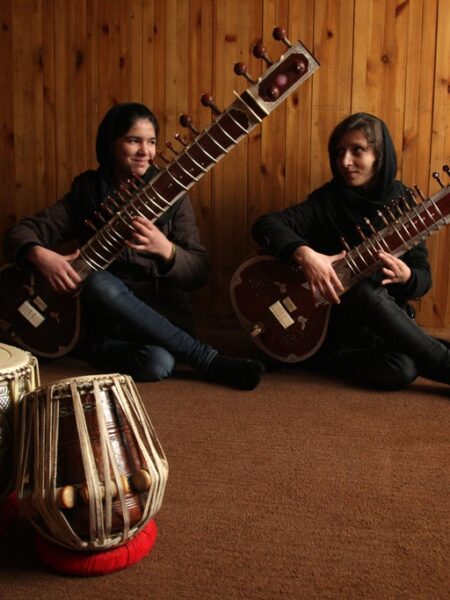INTRODUCTION
Women are a major stakeholder in the development project of any society. Globally, the issues of women marginalization and low participation in political leadership and decision making have been attracting a lot of attention from scholars such as Nwando Achebe (The female King of Colonial Nigeria: Ahebi Ugbabe).[1] Although women and men have different biological and physiological make-up, they may share common features with men in terms of educational qualifications, socioeconomic status and occupation among others. Yet, they are marginalized in virtually all spheres of public life. In many African countries, such as Nigeria, obnoxious social norms, political exclusion and economic empowerment has been the major focus, as the cause of women’s ineffective political participation in the country. It is assumed by many scholars that the reason why there are lesser women involved in the country’s politics, is because women are financially handicapped, and therefore, are too busy trying to make a living. (Women and Leadership in Nigeria: Challenges and Prospects) [2]
This assumption is not entirely true, as most of the men in political position in Nigeria, are not financially buoyant themselves. So the suggestion that there should be government programmes channeled towards poverty alleviation and women empowerment in order for them to be more interested in aspiring for political post is misleading. This is because, financial capability is not the obstacle to effective participation of women in politics, governance and decision making in Nigeria, is rooted in historic perspective which started during the colonial era, with the scrapping of women’s post from colonial government and imposition of male exclusive administration dubbed as Native Authority System by the British imperial government in Nigeria as a colony. With British colonial government, women were entirely excluded from the indirect rule administration and therefore had no representation throughout the colonial period. Pre-colonial women in Southwest Nigeria were part of the ruling elites and some were even kings in their community.
Although there was no established political structure that enabled women to attain leadership positions during this period, except in the case of regency. Which is a situation where a female king rules for a short period until a new male king is crowned. In other words, it is an instance where a woman serves as an acting king until a new king ascends the throne. There is no stipulated time for the reign of regency. It only comes to an end when a new king emerges. Other leadership positions, Pre-colonial women took, were as market women leaders and community women leaders. This was to serve as a platform for women representation. But there was no platform for a woman to become the overall community leader such as kings. With this, few women were able to get leadership roles for a period of time and this shows the imbalance, in terms of political leadership opportunities. It emphasizes the patriarchal nature of the society and how slim the chances of women ruling the society, were during this period. The male-female leadership ratio was low during this period but it became lower with the establishment of colonial administration and British patriarchy. The colonial Southwestern, Nigerian women were relegated to household women and commercial participants only. The consequence of this was that a type of political culture was created which had the following consequences:
- Women lost their political rights and had no place in government.
- Women couldn’t get into any post even if they wanted to, so it became impossible for them to inspire to any.
- The society became used to a male exclusive administration, so the thought of having a woman in political post became unattractive. When there is no demand, there can’t be a supply.
METHODOLOGY
The method employed during this research was primarily based on oral interview and historical interpretation. Other information was gotten from existing literatures. The oral interviews gave answers to the research question which was ‘How the Native Authority system did affects women political participation in Southwestern Nigeria’. With the use of oral history, several people were interviewed and information about this period was gotten based on non-participatory observations. The interviewees are old ladies (aged 89 and 92) who remembered the colonial administration and the political culture of women in politics during that era.
WOMEN IN POLITICS IN PRE-COLONIAL SOUTHWESTERN NIGERIA
The identified obstacles, challenges and barriers to women’s political relevance and participation in Nigerianotwithstanding, the reality of their continued relevance is not in doubt. In fact, this relevance or reality has a deep-seated historical pedigree and, cultural as well as traditional dimensions. Culturally and/or, traditionally, women have occupied various traditional positions of power in most parts of Africa and, particularly in Yoruba kingdom right from the pre-colonial period. Based on the oral interview, women of this era had no established law that supports women ascendancy to throne. They could only function as a substitute leader.
In fact, Afonja[3] gave analytical relevance to issues of gender identity, equality and struggle for same in her analysis of the position of women in relations to power and authority in traditional Yoruba society. Even though, Afonja’s analysis clearly showed the deep-seated nature of disregard for women’s initial relevance in the monarchical structure of the Yoruba race, when she claimed that “the foundation of patrilineal rule of succession to the highest political office, that of the monarch, was laid when Oduduwa bypassed his two eldest daughters to confer authority over new territories on his seven princes”. Her generative analysis of Yoruba history from AD 100 shows that “the monarch was (and still) a source of legitimate authority for women either as direct monarchs or as Regents” thus, constituting a gender identity and or its formation and perpetuation. The monarchy as a culture based activity is not only reserved for men but also for the women if not for the “logic of domination” and philosophy of “men as victimizers and women as victims”. This is decipherable from Afonja’s position that:
“Women became rulers in one or more of the following ways: they were picked by the Ifa oracle on the prediction that their reign would be more prosperous than that of direct heirs to the throne: they acted as regents for young heirs to the throne for extended periods of time, or in cases where the Ifa oracle was unable to find a suitable heir and having shown immense ability as regents they were allowed to rule.”
This situation spanned the length and breadth of most if not all Yoruba kingdoms including the source – Ile-Ife. In fact, there were instances where women ruled throughout as the substantive monarchs. This happened in Akure, Ondo State where three female rulers occupied the throne between 1393 and 1414 and Ado-Ekiti, in Ekiti State where one female ruler. Yeyenirewu, ruled between 1511 and 1552. It equally happened in Ile-Ife where Luwe was a female Ooni (ruler of Ife) as well as in Egba land where Tenilade, Erelu and Latoni respectively reigned as the traditional rulers. Not only this, it has been argued that:
“Oral tradition has it that women played prominent roles in the political history and decision-making processes of (some) traditional societies. The legendary roles played by Princess Inikpi of Igala land and Moremi of Ife as saviours of their societies during warfare, to the extent of sacrificing their lives to ensure victory, were remarkable. Other notable women of valor who helped in directing the course of history of their traditional societies in the pre-colonial era included Queen Amina of Zaria (a formidable female ruler who led military expeditions and expanded her territory as far as River Niger, the Kwararafa empire and Kano in the north), Queen Kambasa of Ijaw and Queen Owari of Ilesa.”
In the pre-colonial communities with dual political systems, women generally mobilized for theirs and their families’ welfare. The leaders of the women usually got
their position of authority and influence on merit. They could articulate the views of women and had the financial wherewithal to maintain their status. Among these were
the Iyalode, Lobun, Arise of the Yoruba, the Omu of Onitsha and Western Igbo. Women also had strong and powerful associations through which they organized and
acted politically. The associations enabled them to put up a united front to express approval or disapproval to political situations. Among the Igbo, there was also the institution of the Umu Ada, the eldest daughters of the village whose main role was peace-making in the community. The Umu-Ada were usually feared because they often used their enormous powers to intimidate family members, particularly the wives.
Equally positions of authority as traditional chiefs existed for women as well. Even though, these were at the lower levels of the traditional hierarchy, they (that is the positions) were indicative of the cultural values, norms and beliefs which, combined, gave a pride of place
to gender identity and social cohesion needed for the peaceful and crisis-free existence of the people while reducing social exclusion or ostracism. [4]
WOMEN IN POLITICS IN COLONIAL SOUTHWESTERN NIGERIA
The establishment of colonial rule in Nigeria officially began in 1914 and it ended in 1960. During this period, women were excluded from the administration, and very few women were able to beat the odds. The highest level of leadership was the Native chief which served as the representative of the British officials. This is evident in the nomenclature of the system, dubbed as “indirect rule system”. In other words, the British colonial government ruled the people indirectly, through the indigenous native chiefs. It is interesting to note that; only one woman was able to rise to the position of a native chief throughout the whole country. This woman was known by the name Ahebe Ugabe. She was a spy and an interpreter for the colonial officers at She was from the southeastern part of the country, also known as Igbo land. She served as a native chief from 1916-1930. She couldn’t sustain the position till the end of the colonial administration because her people revolted against her and the colonial administration had to replace her with a man.
Meanwhile in southwestern Nigeria as well as the Northern part of Nigeria, no woman was allowed to become a native chief. But notwithstanding, few women were able to become politically acclaimed through their involvement in anti-colonial struggles and political activism. Biographies of such women will be highlighted below:
Wuraola Esan:
She was a pioneering Nigerian women’s rights activist, educator, and nationalist. In 1960, she became the first women member of the Nigerian Senate in the First Republic after she was appointed by the Western Region under Awolowo’s Action Group party. Esan was born in March 1909 in Calabar to the Ojo-badan family of Ibadan. Her father, Thomas Ojo-Ade, was a veteran soldier of World War I and fifth in the line of succession to the Ibadan throne. Her mother, Ajike Ojo Aina, popularly called Iya Gbogbo (mother of all), was a self-made businesswoman. As at the start of the twentieth century, the British colonial administration did not encourage the education of girls in Nigeria but Esan’s parent recognized the importance of the acquisition of Western education for their female children.
As such, between 1921 and 1923, Esan was educated at Sacred Heart Covenant School in Ibadan for her primary education. In 1927, she graduated from Idi-Aba Baptist Girls School, Abeokuta and later went to pursue her teacher training education at the United Missionary College (UMC), Molete, Ibadan. In 1935, she began teaching at Methodist Girls’ High School (MGHS) in Lagos – a school prestigiously known for the secondary education of girls in Nigeria.
While in Lagos, Esan was deeply inspired by the Lagos Women’s League which gave active support for the education of girls. Her political activism gained its momentum when she and some other women played active roles in the Nigerian Youth Movement and the National Council of Nigeria and Cameroons – which were very active in the politics of Lagos at the time. In the 1950s, Esan entered partisan politics and was a member of the women’s wing of Awolowo’s Action Group (AG) where she worked closely with another women’s right activist, Tanimowo Ogunlesi. Though the women in the party were important instruments to garner votes, few were accorded official power and party-wide responsibility. In 1954, she took a chieftancy title and in 1958, she was elected to Ibadan Urban District Council.
In 1960, Esan became the first woman member of the Nigerian Senate in the First member of the Nigerian Senate in the First Republic after she was appointed by the Western Region under the AG party. Esan was also a founding member of the National Council of Women Societies and was also deeply involved in community political activities. Throughout her life, she campaigned for women and girls’ education. In the 1940s, she established the Ibadan People’s Girls Grammar School in Molete, Ibadan.[5]
Tanimowo Ogunlesi:
She was a women’s right activist, teacher, and founding member of the women’s section of Obafemi Awolowo’s, Action Group (AG). She was born on 01 December 1908. She attended Saint James Primary School in Iperu, and Kudeti Girls School in Ibadan. In 1925, she joined CMS Girls’ Seminary School in Lagos to train as a teacher.
In 1947, Ogunlesi founded the Women Improvement Society (WIS) following the refusal of the ministry of education of the Western Region to provide free accommodation for children who wanted to learn how to read and write but lived very far from Ibadan. The WIS was aimed at improving the living conditions of women and promoting girls’ education. In 1948, Ogunlesi created Children’s Home School in her own house, one of the first Nigerian-owned boarding schools. In her home, girls who came from neighboring towns could find accommodation and receive lessons.
In the 1950s, she joined the Action Group (AG) and founded its women’s section. Within the party, she held a position of prestige, and in July 1953, she was the only female member of the Nigerian delegation to the United Kingdom to discuss the country’s independence. In 1954, she extended her activism for women’s rights to the international level where she participated as a representative of WIS at the international conference of the International Alliance of Women (AIF) in Copenhagen. Following this, she helped create the Nigerian Council of Women’s Societies and in 1959, she became its first president. Throughout her life, Ogunlesi fought for women’s rights, education, and socioeconomic rights both in party organizations and women’s networks, as well as at her own school.[6]
CONCLUSION
While women were never fully equal to men in political sphere, women in pre-colonial Africa governed kingdoms, established cities, launched military conquests, and founded states. Some governed as sole rulers often as queens, while others governed together with a king, as a mother or sister of the king. A third arrangement involved tripartite sharing of power among the king, mother, and sister, and a fourth arrangement involved societies in which an age set or group of elders governed the society and in which women exerted either direct and indirect power.
Women lost out in such arrangements, first with the spread of Islam and Christianity and later with colonization. Women participated actively in nationalist movements, but their motivations sometimes differed from those of men, and were related, for example, to taxation and the desire to improve female education. After independence, women were further sidelined from political life with a few exceptions.
[1] ACHEBE, N. (2011): The Female King of Colonial Nigeria;Ahebi Ugbabe. U.S.A;Indiana University Press.
[2] Women and Leadership in Nigeria: Challenges and Prospect; Developing Countries Studies Vol 5. No. 4, 2015
[3] AFONJA, S. 1986. “Women, Power and Authority in Traditional Yoruba Society” in Leela Dube et al 1986 ed, Visibility and Power: Essays in Women in Society and Development. India New Delhi, Oxford University Press.
[4] Akindele, S.T. Adeyemi , O.O. et Aluko, K.. 2011. The Myth and Reality of Women in Politics: A discourse of the core issues. African journal of political science and international relations. Vol 5 (4), pp. 190-207
[5] AWOSIKA, T. 2021, The Republic Journal. www.https://republic.com.ng/gender/who-was-wuraola-esan/ accessed, July 6th 2022.
[6] AWOSIKA, T. 2021, The Republic Journal. www.https://republic.com.ng/gender/who-was-tanimola-ogunlesi/ accessed, July 6th 2022.


